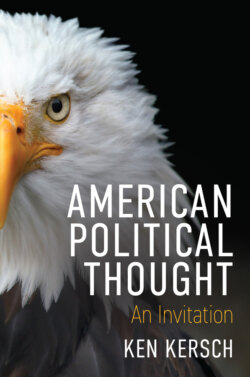Читать книгу American Political Thought - Ken Kersch - Страница 26
Conclusion
ОглавлениеThe political thought of the colonial settlements that would eventually unite – minus the loyalists – to become the fledgling United States was a honeycomb of affinities, arguments, dissonances, and what today look like contradictions, many of which continue to shape, and vex, the country. The Puritans who emigrated to Massachusetts Bay seeking and celebrating religious freedom found it next to impossible to respect the religious liberties of those they took to be misguided, if not heretical. Those who dissented from their orthodoxy were harassed, jailed, and banished. Some Quakers were even executed. The voluntarist organization of the Puritan churches both pioneered proto-democratic and proto-liberal understandings of government by consent, and were premised – as was the participatory democracy of ancient Athens – on the community’s powers of expulsion and exclusion.
The American Revolution, fueled by appeals to universal Enlightenment values like liberty and equality, popular sovereignty, and national self-determination, was clearly one of world history’s most significant anticolonial uprisings. But vis-à-vis the land’s indigenous peoples, the Americans who made that revolution were themselves an ascriptive, expansionist, and often brutal colonial power who rarely afforded those who stood in their way universal recognition as fellow human beings. The same was true for their treatment of the enslaved Africans, who were bought and sold as chattels. What Jefferson celebrated as an “empire of liberty” was an empire of dispossession and slavery. Many, including Jefferson himself, recognized these contradictions. Some, to be sure, challenged these injustices in the name of liberal Enlightenment values. Others, however, either saw no contradiction at all, or justified their beliefs and their practices. Liberty, as they would have it, was for those who had the capacity to rationally and intelligently exercise it. And equality was for equals.
The liberal and republican strains of colonial and early American political thought also vied for pre-eminence, with these different frameworks being enlisted in different times and different places by different people – and sometimes by the same person in a single sermon, speech, or pamphlet. In many cases, the opposition could seem a false one, especially when we take into account that classical and Renaissance republican thought was being retooled in the modern world for that new political animal, the “commercial republic” nation-state.
These tensions and dynamics played out in debates over the governing structures set out, first, in the country’s state constitutions, then in the Articles of Confederation, the US Constitution, and, following the hard-fought ratification of the Constitution, in the question of how the powers and limits on them would be applied and interpreted. Far from resolving matters concerning the legitimate powers of government generally and more specifically (legislative, executive, judicial; the states versus the national government), the oppositions that structured the debates between the Federalists and the Antifederalists flowed into George Washington’s administration, where the New Yorker Alexander Hamilton, a proponent of an energetic federal government taking an active role in building a finance-capitalism-fueled urban-industrial economy, with hopes for wealth, glory, and national dominance on a global scale, fought for Washington’s ear with the Virginian Thomas Jefferson, a proponent of rural agrarianism and localism, who was deeply suspicious of both finance capital and powerful (especially centralized, distant) government.
These affinities, antagonisms, arguments, and dissonances lent the American founding a multivalent – and sometimes contrapuntal – character that left Americans with a powerful but complicated ideational and institutional legacy.
